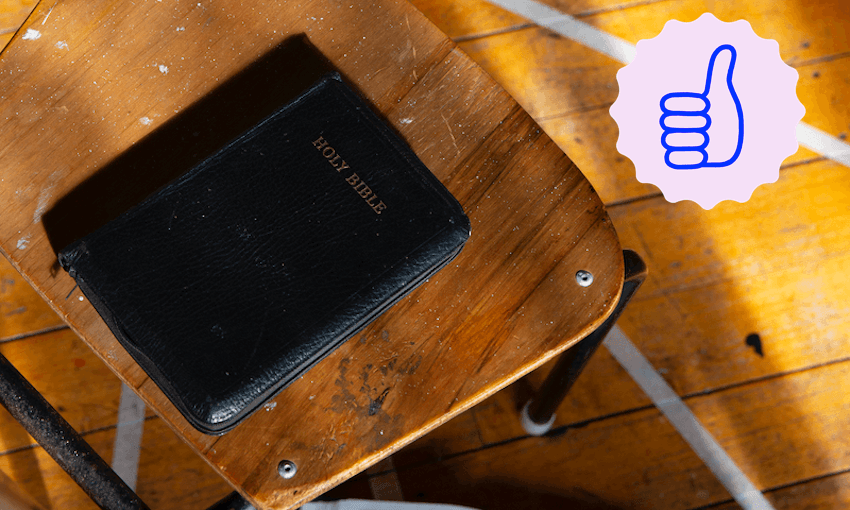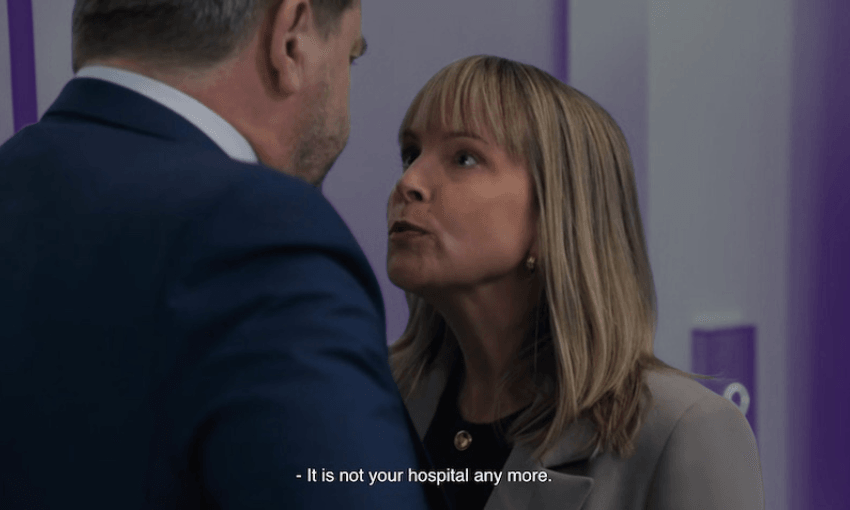A new documentary tells the story of the fight to ban conversion therapy, but more crucially tells us the stories of people harmed by the practice.
The lowdown
The fight to ban conversion practices – the umbrella term given to processes that claim to convert queer people to heteronormativity – in Aotearoa wasn’t a quick one, and it wasn’t an easy one. Beyond Conversion, which premiered on TVNZ Tuesday night, tells the story of the Conversion Practices Prohibition Legislation Bill (coloquially, the conversion therapy bill), as well as the history of a practice that would, frankly, be better labelled as torture.
Beyond Conversion goes wider than the actual bill, though. The documentary highlights survivors of conversion practices, advocates for the bill, and essentially makes a valiant attempt to demystify something that for decades remained behind closed doors, not widely understood by even the queer community, let alone the wider world. It sets up the fight to ban practices, which would lead to a bill with the highest number of submissions to Select Committee in our country’s history (106,700, for the curious).
The good
It’s the insights into conversion therapy that prove most revealing, and galling. Let it be said: conversion therapy is a euphemism. It’s a soft umbrella phrase encompassing processes that include literal physical abuse (the example of people being forced to flick a rubber band against themselves whenever they had an “unwanted” thought), gaslighting and brainwashing. It’s torture.
Where Beyond Conversion shines most is giving us the stories of survivors. Rob Sykes, who grew up in the Church of Latter Day Saints, went through a conversion practice, and it took him until his 30s to come out as gay. He was terrified to leave the church, but after he came out he was excommunicated anyway. Through his story we not only get a sense of how he was cut off from his sexuality, but how that sexuality became a sword of Damocles over his head, cruelly hung by the church. If he engaged with it, he’d be cut off from the only community he’d ever known, including his kids.
Another story comes from Leilani Thompson-Riyks, a non-binary person who suffered from severe post-natal depression, and was referred by their GP to a counsellor who practiced conversion therapy. Their story is a nuanced one, told with tremendous empathy, and it reveals yet another side to conversion therapy: it’s a process that can come with an intention of love, even if the action is anything but. It also, sadly, reveals the fact that the very communities we rely on for support can actually be a debilitating presence.
Ultimately, the best parts of Beyond Conversion aren’t necessarily the political processes behind the bill passing, although those are interesting and delved into at length, but the human stories we hear around them. That even extends to the people who oppose banning conversion therapy, who we hear solely through voice clips (nobody from “the other side” appears onscreen) from their submissions to Select Committee. The inclusion of these invokes a necessary discomfort, both in the idea that these opinions exist in New Zealand, and that the people who hold them are more than willing to express them and have them on the record.
The not-so-good
If there’s one glaring hole in the documentary, it’s the onscreen presence of those who opposed banning conversion therapy. There’s a lot of voices from the far-right, evangelical and otherwise, explaining why they opposed it, but ultimately it would’ve been nice to hear from our elected representatives on why they voted the way they did.
The documentary uses, to great effect, footage from the Select Committee Zooms, and we get to see the faces of many MPs, queer and otherwise, react to the submissions of people who vehemently oppose conversion therapy, and those who equally aggressively oppose banning it. Among those faces are Simon Bridges and Simeon Brown, who both voted against the bill in its third and final reading.
It’s understandable why these people wouldn’t want to appear onscreen to talk about their votes, and even why the documentarians wouldn’t want to platform them – why give someone a chance to justify the unjustifiable? – but the silence feels like an absence. If there’s any place for the people who voted against banning conversion therapy to go on the record, explaining why they did so, isn’t this the place?
The verdict
For most of New Zealand, the ban on conversion therapy won’t mean much. Conversion therapy won’t touch their lives or their community. What this documentary does is throw open the windows on the people for whom this ban means everything – queer people, and their families, who were separated from a core part of identity by a practice that, again, is tantamount to torture. Telling those stories is vitally important, and Beyond Conversion is a necessary insight into a part of our history that is shameful, and hopefully now well and truly in the past.
Beyond Conversion is available to watch on TVNZ+ now.



